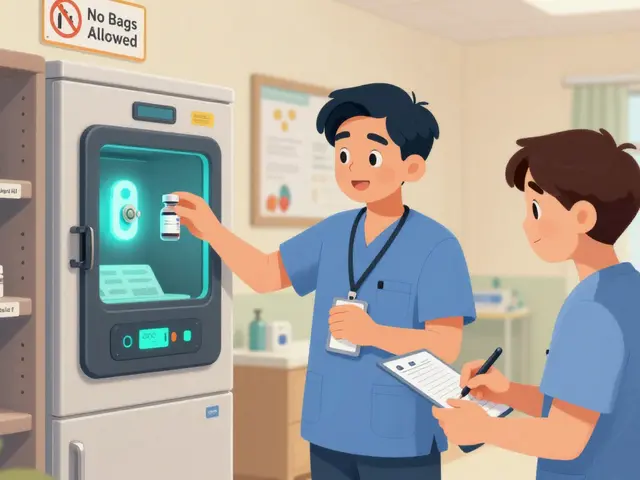
Medication Timing: When to Take Pills for Maximum Effect and Fewer Side Effects
When you take a medication isn’t just a habit—it’s part of how it works. Medication timing, the specific time of day or relationship to meals when a drug is taken to optimize its effect and minimize side effects. Also known as dosing schedule, it can mean the difference between relief and discomfort, or even between safety and danger. Many people assume that as long as they take their pills, it doesn’t matter when. But that’s not true. Some drugs work best on an empty stomach. Others need food to be absorbed properly. Some are meant to be taken at night to match your body’s natural rhythms. Get it wrong, and you might not feel the benefit—or you could end up with nausea, dizziness, or worse.
Take drug absorption, how quickly and completely a medication enters your bloodstream after ingestion. Also known as bioavailability, it changes based on timing. For example, thyroid meds like levothyroxine work best when taken first thing in the morning, at least 30 minutes before eating. If you take it with coffee or breakfast, your body absorbs less—meaning your TSH stays high, and you still feel tired. Same with antibiotics like tetracycline: dairy ruins their effectiveness. Then there are drugs like statins, which are more effective when taken at night because your liver makes most cholesterol while you sleep. Even painkillers like ibuprofen can irritate your stomach if taken on an empty stomach, but taking them with food might delay their pain relief. It’s not guesswork—it’s science.
side effect management, strategies to reduce or avoid unwanted reactions from medications by adjusting timing, dosage, or administration. Also known as adverse reaction prevention, it is deeply tied to timing. Opioids cause constipation and drowsiness—taking them at night helps you sleep through the worst of it. Diuretics that make you pee? Take them in the morning so you’re not waking up every two hours. Blood pressure meds that lower your pressure too much in the morning? Your doctor might switch you to an evening dose. Even something as simple as splitting a daily dose into two smaller ones can cut down on nausea or headaches. The posts below cover real cases: how allopurinol can trigger gout flares if not timed right, why hydroxychloroquine is safer with meals, and how sleep cycles affect how your body handles meds. You’ll also find guides on when side effects typically show up, how cost affects whether people stick to their schedule, and how to use tools like the FDA archive to check if your drug’s timing advice has changed.
There’s no one-size-fits-all rule. Your meds, your body, your lifestyle—all of it matters. But you don’t have to figure it out alone. The articles here give you clear, no-fluff advice based on real patient experiences and clinical data. Whether you’re managing chronic pain, thyroid issues, or just trying to avoid stomach upset from your daily pills, you’ll find practical tips that actually work. Let’s get your timing right.
-
17 Nov






